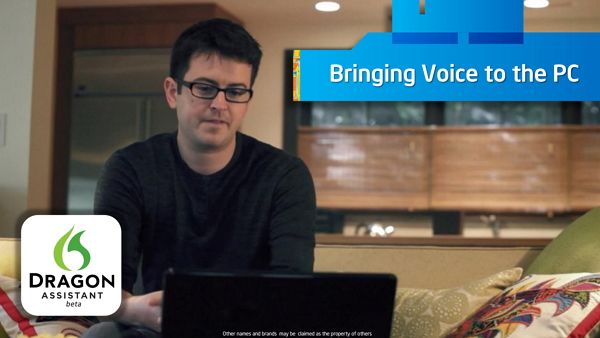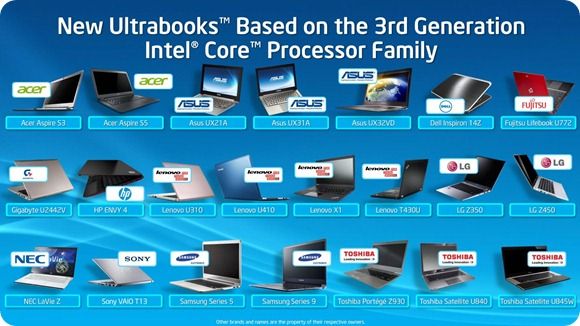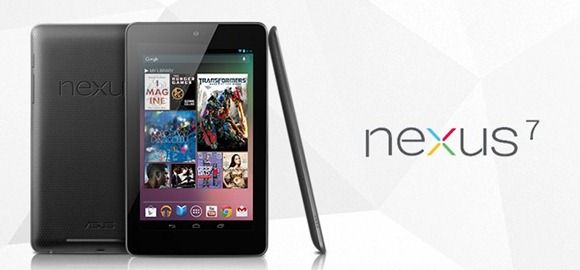At IDF this week, Intel showed off a demo of Nuance’s Dragon Assist software running on an Ultrabook. Dragon Assist, currently in beta, is a Siri-like approach to PC voice control. Using natural words and phrases you can ask the computer to do a number of tasks. The demo that Intel showed on stage was quite impressive — it was fast, accurate, and potentially quite useful. But would you use it?
Tag Archive | "Opinion"

Intel Pushing Voice Control for Ultrabooks, Here’s the Demo. Would You Use It?
Posted on 15 September 2012

Why I’m not a Fan of Wireless Charging
Posted on 15 August 2012
I’m not a fan of wireless charging. I love the idea of cable-less operation but the inefficiencies far outweigh the advantages for me. Maybe I’m just too focused on mobile operation though because I agree, there’s a case for desk-top charging while working. Even though, wouldn’t it be easier to just have a separate charging mat?
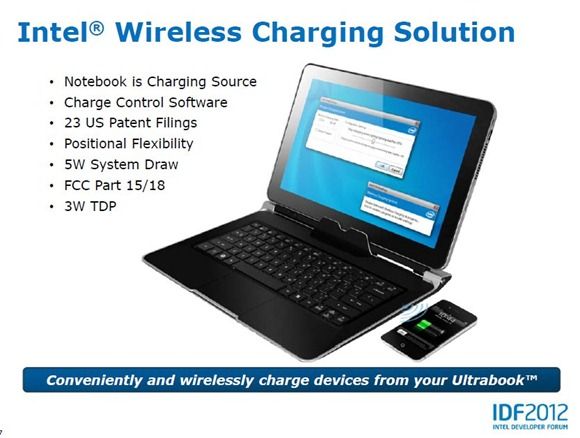

Poll: What are you Waiting For in Ultrabooks?
Posted on 14 August 2012
Readers of this post will have at least given some thought to the word in the last minute but many of you are probably considering whether it fits into your buying plans. Let’s assume you’re looking to buy but haven’t pulled the plug yet. Why are you waiting?

What if there was No Ultrabook?
Posted on 26 July 2012
 Ultrabook is a project, a long-term multi-faceted work by many companies under many project names to bring together some of the best and most-efficient technologies, software and processes in the laptop industry and to make a personal computing product fit for the next ten years.
Ultrabook is a project, a long-term multi-faceted work by many companies under many project names to bring together some of the best and most-efficient technologies, software and processes in the laptop industry and to make a personal computing product fit for the next ten years.
The products coming of the line so far are a good sign that the industry is responding to Intel’s seeding. Style is improving dramatically, Windows boots faster, weight of 13.3” laptops has dropped from over 2KG to well under 2KG and in many cases under 1.5KG. Let’s not forget what the options were, and how expensive they were, just 18 months ago. What would the laptop landscape look like now if the Ultrabook project, and the preceding silicon design, had not happened?

No ‘Fail’ in Ultrabooks This Quarter
Posted on 14 July 2012
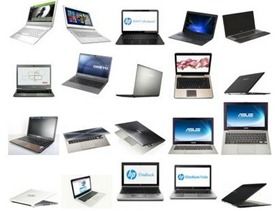 What a depressing, and somewhat embarrassing set of news items we’ve seen for Ultrabooks on the Web this week.
What a depressing, and somewhat embarrassing set of news items we’ve seen for Ultrabooks on the Web this week.
You may have noticed that there hasn’t been much interesting Ultrabook news this week and as we hit summer holidays, silly season starts. Stick with Ultrabooknews for a more sensible take on whats’ going on because journalists, no, juniors employed to cover summer holidays are fed with news items and hints and it usually ends up looking cheap.
“Hey, IDG published a report on the PC market. There’s a few mentions of Ultrabooks in it and it looks bad. Send some provocative copy to the editor because page views are down.” Junior writer ends up with pieces that get edited to this, this and this.
Fact 1 – There are no Ultrabook sales numbers available, only best guesses.
Fact 2 – Ultrabook sales started in June – the last month in Q2.
Where does Fact 2 come from? Us. We’ve got more too…
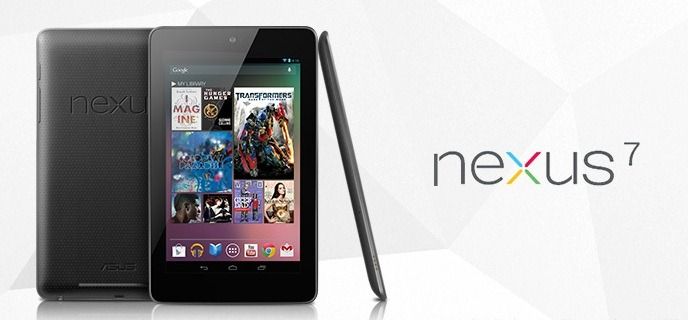
Android Tablets and Aligning Stars – From a UMPC Perspective
Posted on 02 July 2012
Since the decline of the ultra mobile PC market there have been very very few handheld computing choices that have offered the same flexibility. Yes, UMPCs never had fantastic mobile battery life and were relatively big and ultimately failed but there’s still a big requirement for mobile, productive and flexible computing that’s not solved by ARM-based mobile computing solutions. IOS is off-limits to many people looking for UMPC-like flexibility and Android simply doesn’t have the quality software. The Google Nexus 7 could, however, change the economics and finally give ISVs a good reason to invest in high quality mobile productivity software packages for Android. Google in investing heavily into the OS, the cloud services and the applications and the important 3.x+ user base (Fragments-capable end devices) is growing fast. With the growing 4-7 inch ecosystem that Android is doing so well in comes more requirement and confidence in bringing new and niche designs to the market. The stars are aligning for handheld PC fans.

Poll: Would You Use Smart Connect on an Ultrabook?
Posted on 29 June 2012
 Intel’s ‘Smart Connect‘ function is an optional Ultrabook feature that allows a computer to wake from sleep to connect to a WiFi network and update application data. Intel has been pushing this as a great ability which will help you to “stay current with automatic, no-wait updates to your e-mail, social networks, news, and more”. While that all sounds great, I can’t think of any scenario where it would actually be useful, especially given today’s landscape of applications that run from the cloud anyway. So we’re putting it to the readers, step inside and give us your thoughts on Smart Connect.
Intel’s ‘Smart Connect‘ function is an optional Ultrabook feature that allows a computer to wake from sleep to connect to a WiFi network and update application data. Intel has been pushing this as a great ability which will help you to “stay current with automatic, no-wait updates to your e-mail, social networks, news, and more”. While that all sounds great, I can’t think of any scenario where it would actually be useful, especially given today’s landscape of applications that run from the cloud anyway. So we’re putting it to the readers, step inside and give us your thoughts on Smart Connect.

Ultrabook Shopping Alert: ‘New’ Dell XPS 13 is Not New
Posted on 26 June 2012
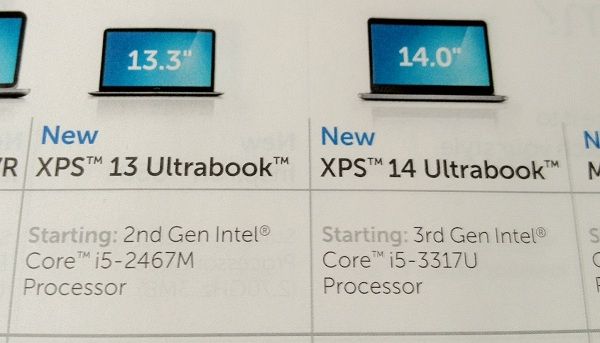
Print advert from Dell showing the ‘New’ XPS 13 based on Sandy Bridge next to the New XPS 14 based on Ivy Bridge
At the beginning of June, Computex revealed to the world a flood of new Ultrabooks based on Intel’s third-generation Ivy Bridge platform. These new Ivy Bridge Ultrabooks, which must meet certain criteria to be called an Ultrabook, represent the second generation of Intel’s Ultrabook specification. Dell’s XPS 13 Ultrabook, while well received, is a first generation Ultrabook based on the previous generation Sandy Bridge platform, but this hasn’t stopped the company from branding it as ‘New’ in online and print advertisements.
 |
| |||
 |
| |||
 |
| |||
 |
| |||
 |
| |||
 |
| |||
 |
| |||
 |
| |||
 |
| |||
 |
|

